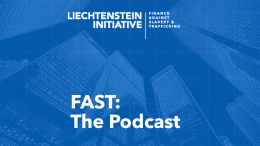No country in the world is immune to the devastating impacts of modern slavery and human trafficking. Representing one of the world’s most profitable criminal enterprises, it generates some USD 150 billion per year. Addressing the financial angle of these gross human rights abuses is recognized as an essential approach in tackling the problem. The engagement of the financial sector, alongside the use of several financial-related policy instruments, plays a vital role. This includes measures to counter money laundering and the financing of terrorism.
This report, commissioned by the Finance Against Slavery and Trafficking (FAST) initiative at United Nations University Centre for Policy Research (UNU-CPR), is based on 18 anonymized semi-structured interviews with officials from the UN, US, EU, UK, and Canada, financial institution representatives and experts on sanctions, modern slavery and human trafficking, transnational organized crime, supply chains, and corporate governance.
This report outlines a number of key findings and recommendations on the use of sanctions to target modern slavery and human trafficking.



